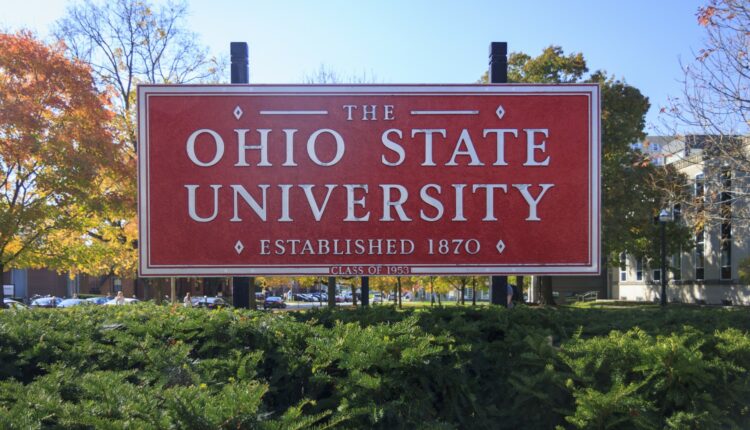Ohio State University: Ohio State professor shortlisted for 2022 PEN Open Book Award
Early last month, Elissa Washuta, assistant professor of creative writing in the Ohio State University English department, received word that her latest book, “White Magic,” was on the shortlist for the 2022 PEN Open Book Award.
Five books were selected as finalists for the award, which is given to “an exceptional book-length work of any literary genre by an author of color.” In addition to the prestige of the honor, the winner receives $10,000.
Finding out she was a finalist “was so meaningful,” Washuta said. “I was just so happy and grateful. … It was hard to release a book in the pandemic after working on it for eight years. This felt like something real and tangible, a recognition of my book existing and a recognition of all my work.”
Several years ago, she served as a judge for the same award and enjoyed the process immensely.
“Reading outside of the genre I teach, reading fiction and poetry, which I love – these finalists were just mind-blowing,” she said. “I have really good memories of that process. We were celebrating the best books, so it feels like a meaningful honor to have my book on the shortlist.”
“White Magic” is a series of essays that trace her experiences with love, sobriety and colonization – she is a member of the Cowlitz Indian Tribe – as well as witchcraft and pop culture. Published in April 2021, it received glowing reviews from The New York Times, Kirkus and Booklist. Time called it “electric.”
Washuta brought her talent to Ohio State in 2017. She visited Columbus not knowing anything about Ohio but was immediately taken with the university.
“I felt so comfortable with the faculty I met with during my interview,” she said. “I feel an ease here.”
Washuta’s fellow faculty members are just as happy to have her in their company.
“Elissa is not only a phenomenal writer, but she is also a great colleague – I often turn to her for advice on teaching creative workshops,” said Nick White, associate professor of English. “We are very lucky to have her at Ohio State, and I always learn from her.”
Washuta takes great pride in her workshops, which she sees as opportunities for authors to receive input from many readers at once.
“I have tried to create a creative writing classroom in which we are always paying attention to the fact that we are reacting individually as readers, that there is no universal reader. I talk about how expectations are shaped,” she said.
This is especially important for Washuta’s students who may “experience pains … based on identity” in how their work is received, as she did, and the assumptions that people make about those identities. She strives to impress upon her students that their work is interesting and that, if they’re interested, there are other tools they can develop that can impact their work further.
Revisions are another process Washuta enjoys teaching.
“I love revision because I feel like I am putting puzzle pieces together. Doing that with students is so much fun. I get so excited to talk about people’s essays and what I see working,” she said. “A work is not good or bad. It’s a process, understanding the reader’s experience of the piece and whether it works as intended.”
In addition to continuing to teach at Ohio State, Washuta is working on a book about money and video games, through support from the Global Arts and Humanities Society of Fellows.

